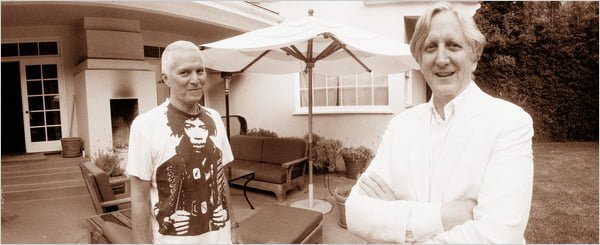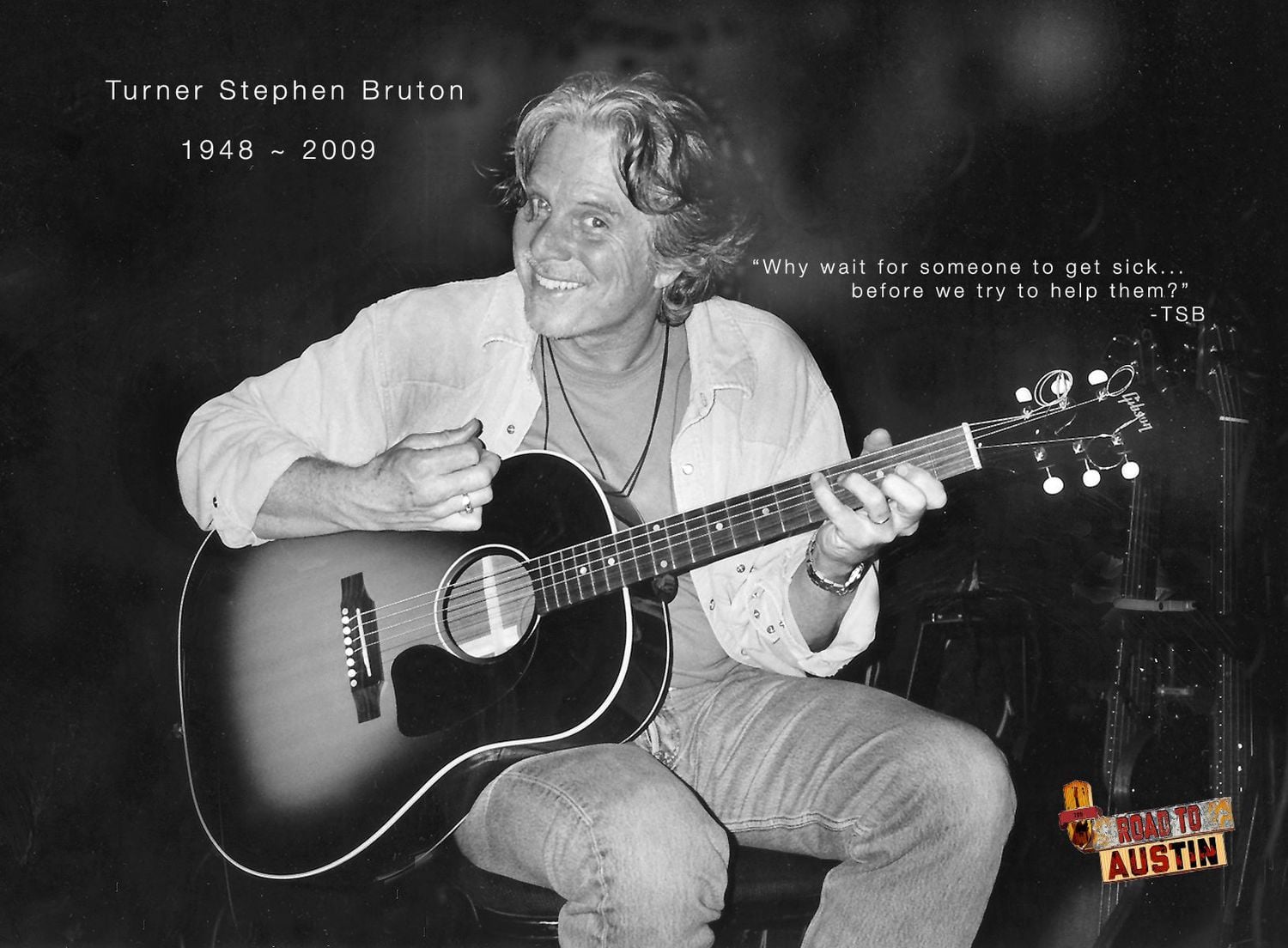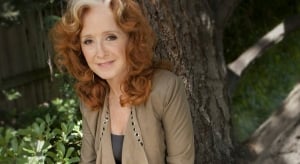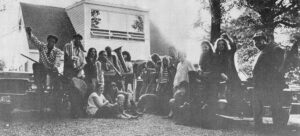By EDWARD WYATT
Los Angeles, February 4, 2010


Credit Jeff Bridges/Fox Searchlight Pictures, via Austin American-Statesman
FOR all of the on-screen drama that led “Crazy Heart” to three Academy Award nominations this week, an equally poignant tale is unfolding behind the scenes of the film in a battle over the estate of the songwriter Stephen Bruton, who co-produced the “Crazy Heart” soundtrack and tutored Jeff Bridges on guitar for his Oscar-nominated role as an aging country singer seeking love and redemption.
The estate battle involves Mr. Bruton’s wife of 13 years, Mary Keating Bruton, a photographer and former model, and T Bone Burnett, the award-winning music producer, who recruited Mr. Bruton — his friend since the two hung out together as youths in the Fort Worth music store owned by Mr. Bruton’s father — to the movie project.
Mr. Bruton died of cancer in May in Los Angeles shortly after completing work on the film’s soundtrack, for which he helped write six songs, four of them with Mr. Burnett. In the two months before he died Mr. Bruton filed for divorce from Mary Bruton and signed a will that left her $100 beyond their community property. The will, which named Mr. Burnett as executor, left the bulk of his $1.2 million estate to his brother.

Credit Deborah Cannon/Austin American-Statesman, via Associated Press
In court papers contesting the will Mary Bruton accused Mr. Burnett of exerting undue influence over Mr. Bruton as his health deteriorated and said her husband was under the effects of medications and progressive dementia that rendered him incapable of managing his business affairs. The dispute comes as “Crazy Heart” is gaining momentum in the Oscar race in both the acting and the music categories and as the soundtrack has climbed the country music charts — which could produce royalties far exceeding those from any of Mr. Bruton’s other work. .
Yet friends and family members on both sides say that even though the dispute is focusing on the estate, the real issue is the legacy of Mr. Bruton, whose skills as a guitarist made him in demand for recording sessions and who played onstage with Kris Kristofferson and Bonnie Raitt, among others.
Mr. Bruton’s friends contend that Mr. Burnett has minimized Mr. Bruton’s role in and compensation for creating the film’s music and has exaggeratedly characterized Mr. Bruton as a role model for the main character, wrongly implying, the friends say, that Mr. Bruton was a washed-up singer who could not command audiences bigger than those that would fit into the cocktail lounge at a bowling alley. The film was based on the novel “Crazy Heart” by Thomas Cobb, but Mr. Bruton contributed some telling details to the screenplay that he learned from life on the road, including having the main character carry a Sparkletts water bottle in his truck to urinate into so he wouldn’t have to stop on long drives.
Friends of Mr. Burnett, meanwhile, say that it was by his largesse that Mr. Bruton became involved in “Crazy Heart.” And they point to online videos of the two men working in a Los Angeles recording studio last spring as evidence that Mr. Bruton was not only in full command of his faculties but also enjoying himself as he came to the end of the project and his life.
Both Mr. Burnett and Mary Bruton declined to comment on the situation when contacted through their business managers or lawyers. But people who are close to both parties said the dispute arose in early 2009, when Mr. Bruton was bedridden with throat cancer in the house he shared with Mary Bruton in Austin, Tex.
At that time people involved in the film, including Mr. Bridges and Scott Cooper, the director of “Crazy Heart,” came to Austin to screen a rough cut of it for Mr. Bruton. Shortly thereafter he began to recover, and in February Mr. Burnett chartered a plane to fly Mr. Bruton to Los Angeles to finish work on the soundtrack. A month after he left, he filed for divorce, saying in the court filing that Mary Bruton “is guilty of cruel treatment” of him.
“He’d been wanting to do that for a long time,” Sumter Bruton, Stephen Bruton’s brother and the main beneficiary of the new will, said of the divorce filing. He said in an interview that he spoke to his brother after he moved to Los Angeles. “It wasn’t a spur-of-the-moment thing,” he said. “He certainly was of sound mind at the time.”
But people close to Mary Bruton said she and other friends from Austin who tried to contact Stephen Bruton in Los Angeles were rebuffed. Matt Clark, an actor and longtime friend of Mary and Stephen Bruton, said in an interview that Mr. Bruton stopped communicating with Mary and others once he moved. Only weeks before, Mr. Clark said, Mr. Bruton had expressed to him while in Austin that he was very grateful for Mary Bruton’s care.
“He told me that the only time he felt he could close his eyes was when Mary was lying next to him,” Mr. Clark said. “That was only three days before he went to California.” Mr. Clark also said that Mr. Bruton darkly commented to him that during the course of his illness, Mr. Burnett seemed most interested in making sure the music was completed before Mr. Bruton died.
Mr. Cooper, who also wrote the screenplay for the film, said in an interview that it seemed to him that “Stephen had a new lease on life” once he got to Los Angeles and began working in the studio with Mr. Burnett and others.
“There’s probably no bigger fan of Stephen Bruton than T Bone Burnett,” Mr. Cooper said. He added that Mr. Burnett, “at his own discretion, removed his executive music producer credit and original score credit so that the one credit on the film was ‘Music by Stephen Bruton and T Bone Burnett.’ ”
Though Mr. Bruton wrote much of the music with Mr. Burnett and recorded some guitar licks that are part of the film, it is a different song — “The Weary Kind (Theme From ‘Crazy Heart’),” written by Ryan Bingham and Mr. Burnett — that was nominated for an Academy Award. Also nominated fr0m the film was Maggie Gyllenhaal, for best supporting actress.
Mr. Bruton received some medical treatments while in California, as he had previously in Austin and at the M. D. Anderson Cancer Center in Houston. He included in his will a bequest to reimburse Mr. Burnett for the expenses associated with moving him to Los Angeles, for medical and personal care while there and for legal, accounting and professional fees associated “with my medical and financial recovery and my divorce from Mary Keating Bruton.”
People on both sides expressed dismay that all of this comes at a time when the film,which initially could not even interest the company that paid for it to put it into theaters, is ascending to new heights. “Crazy Heart” was produced for about $7 million by Country Music Television, a unit of Viacom, but that company’s Paramount Pictures division did not want to distribute it. It was sold to Fox Searchlight Pictures, which moved up the film’s release and saw it catapulted into the Oscar race.
“It’s sad for me that there is a dispute,” said Cameron Strang, the president of New West Records, which released the film’s soundtrack. “The entire project was an attempt to honor Stephen and his memory, right down to the dedication at the end of the film.” It reads: “This film is dedicated to the memory of Stephen Bruton.”
Source: © The New York Times











 Visitors Today : 101
Visitors Today : 101 Now Online : 1
Now Online : 1















































































































